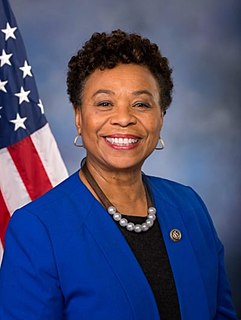A Quote by Robert H. Jackson
Any court which undertakes by its legal processes to enforce civil liberties needs the support of an enlightened and vigorous public opinion which will be intelligent and discriminating as to what cases really are civil liberties cases and what questions really are involved in those cases.
Related Quotes
Let's put it in perspective at the United States Supreme Court, which hears maybe 60 cases a year, most of the cases are resolved without much dispute. The 10 or 15 that are controversial we all know about, and we hear about. The federal courts hear just a tiny sliver of the cases that go to court in this country. Most of the cases are in the state courts. And most legal issues never go to court. So, the legal system is actually not in jeopardy. At the same time, access to law is in jeopardy.
I think that there’s going to be a rush to judgment on civil liberties, and a clamping down, a suspension of our democratic rights. And I believe that those who are good Americans would want to see this not happen and that we debate how to find a balance between the public safety and the protection of civil liberties.
Access to our civil courts has been severely restricted by the combination of: the removal of legal aid from some cases based on their type, not their merit; a high financial threshold for the receipt of legal aid in other cases; and a failure to deliver a safety net for vulnerable individuals by the exceptional funding arrangements.
While I sat in family court, I probably heard 20 or 25,000 cases. And I am sure, during the course of those cases, there were cases that I probably would've decided differently had I had either more time or been able to explore more. But all you can do as a judge is really give a case your best effort.
Civil rights are those which appertain to man in right of his being a member of society. Every civil right has for its foundation some natural right pre-existing in the individual, but to the enjoyment of which his individual power is not, in all cases, sufficiently competent. Of this kind are all those which relate to security and protection.
The threats are coming to this country, which will, of course, increase the massive industry known as the anti-terrorism industry, and crush our civil liberties and civil rights, And it's devouring our priorities here in communities all over the country which are in such disrepair and are so neglected in terms of public works and public services.
Liberal Democrats in government will not follow the last Labour government by sounding the retreat on the protection of civil liberties in the United Kingdom. It continues to be essential that our civil liberties are safeguarded, and that the state is not given the powers to snoop on its citizens at will.
The issue is not whether there are horrible cases where the penalty seems "right". The real question is whether we will ever design a capital system that reaches only the "right" cases, without dragging in the wrong cases, cases of innocence or cases where death is not proportionate punishment. Slowly, even reluctantly, I have realized the answer to that question is no- we will never get it right.
The civil liberties types who are fighting this issue have to fight it, owing to the nature of the laws, as a matter of freedom of speech and stifling of free expression and so on. But we know what's really involved, dirty books are fun. That's all there is to it. But you can't get up in a court and say that.

































